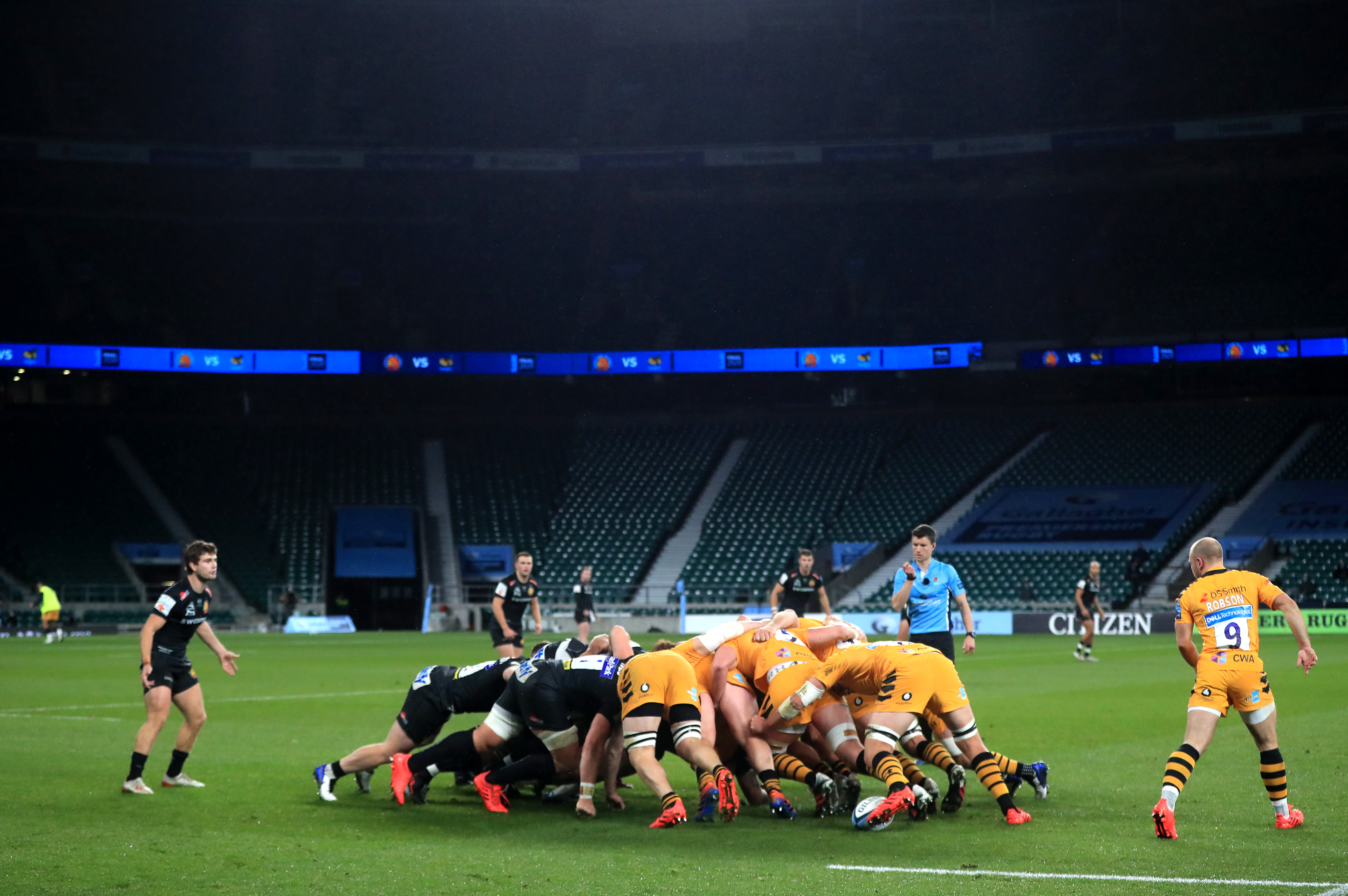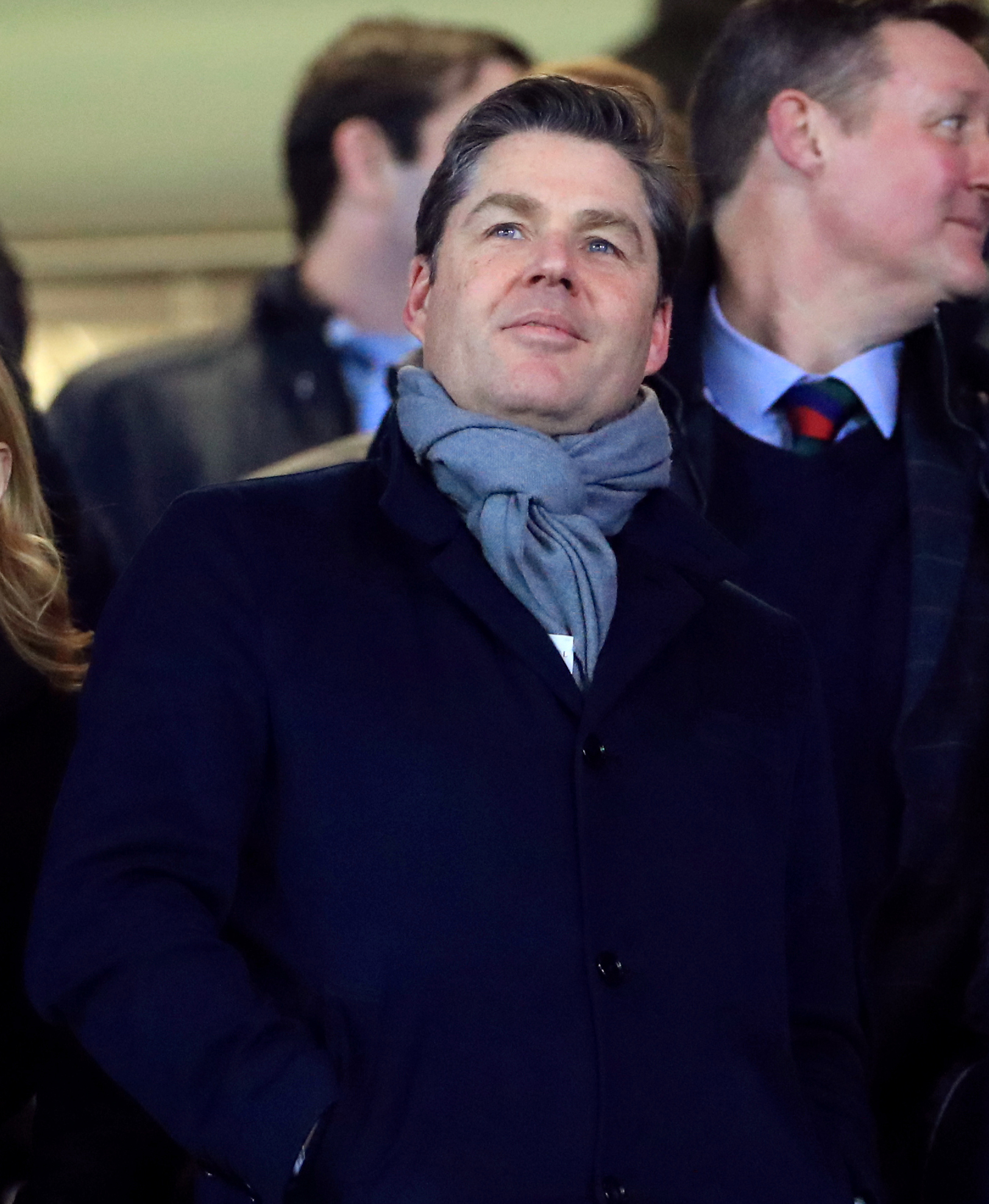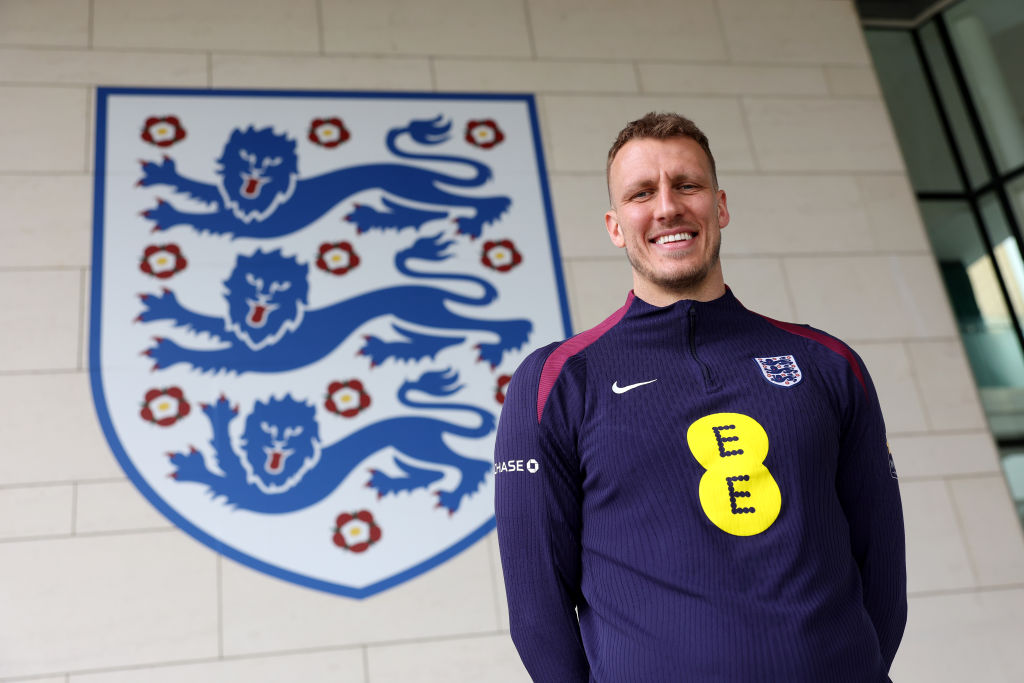Sports minister Nigel Huddleston denies claims of class bias in rescue funding

The best features, fun and footballing quizzes, straight to your inbox every week.
You are now subscribed
Your newsletter sign-up was successful
Want to add more newsletters?

Five times a week
FourFourTwo Daily
Fantastic football content straight to your inbox! From the latest transfer news, quizzes, videos, features and interviews with the biggest names in the game, plus lots more.

Once a week
...And it’s LIVE!
Sign up to our FREE live football newsletter, tracking all of the biggest games available to watch on the device of your choice. Never miss a kick-off!
Join the club
Get full access to premium articles, exclusive features and a growing list of member rewards.
Sports minister Nigel Huddleston rejected the notion of any class or geographical split in the Government’s support package for the sector as he again called on the Premier League and EFL to reach a “compromise” on their own rescue deal.
A ‘Winter Survival Package’ worth a combined £300million to help sports cope with the loss of gate receipts due to the coronavirus pandemic was announced on Thursday.
Culture Secretary Oliver Dowden said there was “definitely a chance” of some spectators being allowed into venues by Christmas, but even with that light at the end of the tunnel the sector was in dire need of a cash injection.
"I am pleased to announce a £300m Sports Winter Survival Package to see major spectator sports through this very difficult period"— DCMS (@DCMS) November 19, 2020
Eleven sports are earmarked to receive £241m in indicative funding to cover the disruption to their usual earnings over the winter, with an independent decision-making board tasked with making the final calls on who gets what.
The remainder of the £300m, which Huddleston estimated to be £250m in loans and £50m in grants, will be kept as a contingency fund to assist with unforeseen pressures.
The support package was broadly welcomed by the sports benefiting from it, but critics pointed to the support for rugby union – indicated to be £135m – and racing as evidence of the Conservatives protecting middle and upper-class pursuits.
Huddleston rejected that idea, saying: “There’s a whole variety of sports being supported by this and the very first sport was rugby league at the start of the coronavirus.
The best features, fun and footballing quizzes, straight to your inbox every week.
“The money is based on the need of clubs to make sure they survive, so it is not a north-south divide, Tory vs Labour area, you will see the money is being spread fairly well across the country.
“It is based on an assessment of need and I am comfortable with that criteria rather than anything else being applied.”

Huddleston also said it was a “false comparison” to look at why Premiership Rugby was receiving state support, and the EFL was not.
“Who else is coming in to save the RFU?” he asked.
“Is there somebody above them? Who else is coming in to be able to say ‘we’ve got money, we’ve shown that we’ve got money available’.
“To be able to support others, there is no alternative option other than Government to come in, whereas in the EFL, there is the alternative option of Premier League funding.”
He called again on the Premier League and the EFL to reach an agreement over a deal to safeguard the future of EFL clubs. Negotiations are continuing over a £50m offer to help clubs in Leagues One and Two, but it has been reported that the EFL is concerned that £30m of that is being offered as loans rather than grants.
“We are doing everything we can to encourage (EFL chairman) Rick (Parry) and (Premier League chief executive) Richard (Masters) to come to a reasonable arrangement,” Huddleston said.
“The fact that the initial deal was rejected is a statement of fact and I appeal to Richard and Rick to both compromise and come to reasonable terms.

“Clearly what is currently presented hasn’t been acceptable so something else needs to come, but it is for them to determine the precise dynamics. I think they are both going to have to compromise and I expect them to do so.”
Huddleston said the emergency fund had been put together following the decision to postpone the return of spectators to venues across sport from October 1.
He said it had not been a mistake to set that date, despite many public health experts warning early in the summer of a ‘second wave’ of infections in the autumn and winter.
“I don’t think it raised people’s hopes. The thing is the data is moving at incredible speeds,” he said.

“I make no apologies for Government changing its decisions based on the information available at the time and that’s what we had to do. We were coming out of a pretty tough spring and the summer looked like it was pretty good.
“We were feeling hopeful, but then circumstances drove different decisions, and no doubt they will again.”
Dowden has raised hopes of spectators being able to attend matches in the lowest-risk areas of the country, saying that the rollout of mass, rapid testing could help to make it happen.
Racecourses are poised to receive £40m, while the Rugby Football League will benefit to the tune of a further £12m, topping up the £16m announced in May to safeguard rugby league’s future.
And £40m to another sport that’s been massively disrupted by covid & the loss of spectators— Oliver Dowden (@OliverDowden) November 19, 2020
Football’s National League at steps one and two – which has already benefited from £10m in National Lottery funding to assist through to the end of 2020 – will receive a further £11m to cover the period between January and the end of March.
Steps three to six of the pyramid will receive £14m, while the Women’s Super League and Championship have been awarded £3m.
Owners and operators of major motorsports circuits will receive a combined £6m, the Lawn Tennis Association will get £5m and England Netball will receive £2m.
Huddleston could offer no firm date when grassroots sport could get back up and running, with the current national lockdown due to continue until December 2 at the earliest.
“We’re working with Sport England to have a clear programme of getting sporting activity up and running but I can’t give you a date, only a hope that we are able to do so as quickly as possible,” he said. “We all get that.”
 Join The Club
Join The Club










